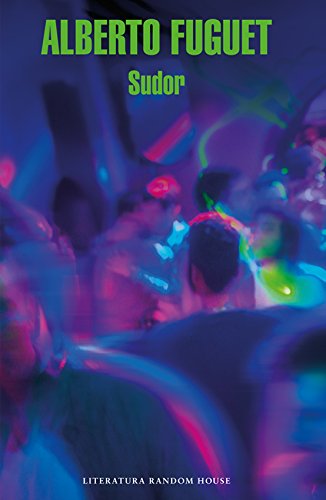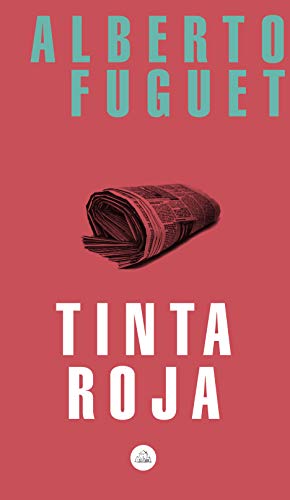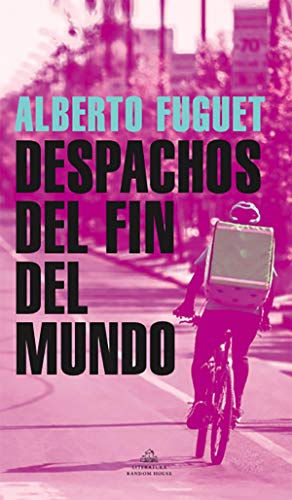When someone asks why write? You can try to give an accurate answer by resorting to some works such as "As I write" by Stephen King or the "Why I write" of Xavier Romeo. Or you can simply implement the titanic strategy of Alberto fuguet. The one that for every answer alleges the "just because", the reason with which great things are faced.
Not in vain, Fuguet writes everything with a holistic vision of the narrative. Books that are sometimes pure fiction and sometimes rest on the realism of the chronicle, or on the rambling of the essay, or on the investigation of biographical essences... Writing is that. A writer is someone who begins to narrate for the sole interest of bringing out that story, or that investigation, or that idea that they keep banging on the doors of the imagination.
So it is not easy for Fuguet to focus on his best novels or his best essays. The very scoundrel zigzags for bewilderment. Because there is a space between reality and fiction in which we all inhabit. There where the thresholds are foggy is where the stories of Fuguet catch us and win us for their cause of making literature of everything.
Top 3 recommended books by Alberto Fuguet
Welder
That the world of literature is the jungle for writers, there is no doubt. Between rampant egos, the writers look at each other with threatening eyes. It is about preserving the greenery of its land and captivating the major labels with the colorful plumage of its creativity idolized by ghost readers ...
Vertiginous, wild, Sweat is the colossal story of an editor who describes, with self-confidence and corrosive humor, the functioning and relationships of the literary world, which is convulsed by the visit and the tyrannical behaviors of a star author and his spoiled son and provocative.
Lucky for a ruthless satire of the vanity fair that can be the press tours of writers and their unleashed egos, this novel is also an investigation without anesthesia in a gay underworld where affections are relegated to the background by the deployment of a series of ephemeral and extreme carnal relationships, fostered by Grindr, the successful social network of homosexual contacts that Alf, the protagonist of the novel, uses with the same frequency with which its authors use him as a counselor, advisor or accomplice. Meanwhile, the city of Santiago, where the few days that Sweat recounts pass, takes on an unusual presence that the Chilean narrative has rarely been able to give it.
Red ink
Recognizing that as an author you always leave something of your own skin in your works is a good starting point. Because we are human and nothing human is alien to us, as the wise man would say ... Our life is a novel increasingly charged with fiction as time goes by. To start writing it is to enter fully into those mysterious mirrors with which we end up deforming everything.
“I've never had a better time writing. Of my novels, this is the most autobiographical, but not the most personal for that. With Red Ink I tried to camouflage myself, reinvent myself, stop, get away, and it was a pleasure ”, writes the author in the epilogue to the reissue of this electrifying novel, which explores from unusual angles the conflicts of journalistic learning, work, friendship and the father and son relationship.
Alfonso, a young journalist in practice for the newspaper El Clamor, dizzyingly narrates a series of bloody events that occurred in Santiago in the 80s. Much of the novel takes place on top of the yellow van in which Alfonso and his companions report crimes, suicides, etc. and accidents while they talk, discuss, joke and try to read an intense, suffocating reality, for them dense and light at the same time.
Originally published in 1996 and made into a film in Peru in 2000, Tinta roja marked a turning point in the Chilean narrative that would later become a watermark in Alberto Fuguet's work: that of taking unexpected paths, always.
End of the world dispatches
In this hybrid book, Alberto Fuguet personally addresses, but in very different ways, a historic year that begins with a total eclipse, continues with a promising spring that suddenly gives way to a great social outbreak and that extends to a tense and torrid summer that leads to a pandemic of unthinkable proportions. Stories, diary entries, reading notes, dialogues, reflections, pop chronicles, quotes and even cooking recipes. “This is not journalism or chronicle, although it partly comes from there, it is not pure fiction either, it is not a novel, although sometimes I think it is, it can be seen as a trailer of what just happened,” it reads. at the beginning.
The strange and agitated times in the intimate, social and political are not easy to narrate. Still, Fuguet takes a chance and creates an epic of collapse. His goal was daring: to register emotions, environments, fears, characters, parties, anguish, laughter and wishes that were born between 2019 and 2020. Also imagine the future. All this, and more, gives shape to this urgent album that takes care of what the poet Frank O'Hara wrote one day and that goes as an epigraph in these Dispatches from the end of the world: “In times of crisis, we must all decide over and over again whom we love ”.




1 comment on “Discover the 3 best books by Alberto Fuguet”